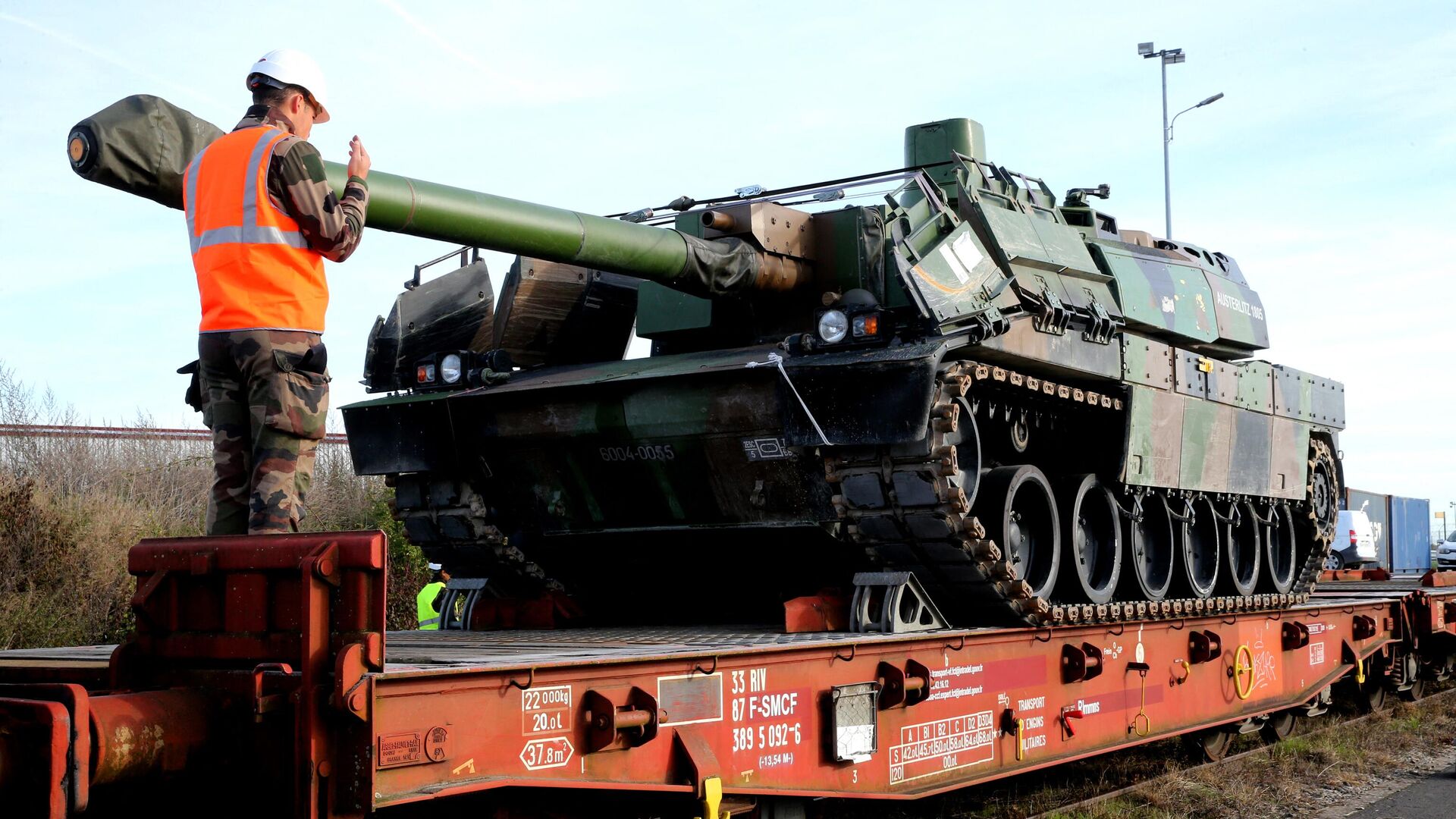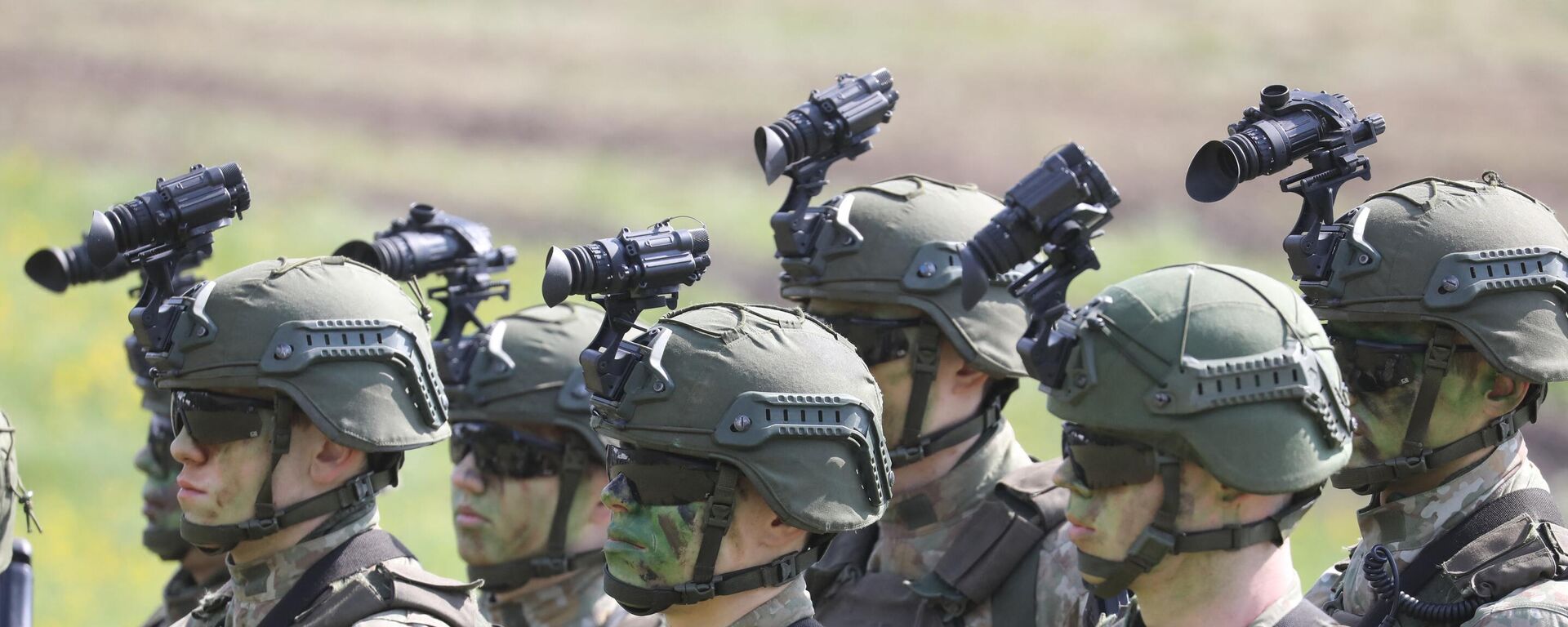https://en.sputniknews.africa/20240512/1066501213.html
Former US Army Officer Predicts Little Success for NATO's Bold Tank Project
Former US Army Officer Predicts Little Success for NATO's Bold Tank Project
Sputnik Africa
A German-French tank of the future will be highly unlikely to compete in the international market, Earl Rasmussen, a retired lieutenant colonel with over 20... 12.05.2024, Sputnik Africa
2024-05-12T12:58+0200
2024-05-12T12:58+0200
2024-05-12T16:09+0200
russia's special operation in ukraine
france
germany
paris
north atlantic treaty organization (nato)
sputnik
leopard 2
m1 abrams
tank
thales
https://cdn1.img.sputniknews.africa/img/07e8/05/0c/1066501391_0:0:3072:1728_1920x0_80_0_0_9af71aad7dbf7ee090740c13ad995278.jpg
The planned project to develop a main battle tank for Germany and France will remain closed to other shareholders for now, the French branch of the KNDS arms consortium has announced.The French and German divisions of KNDS, as well as Rheinmetall and Thales, previously unveiled plans to set up a project company to work on the tank of the future, known as the main ground combat system. This was preceded by Berlin and Paris agreeing to jointly develop a sophisticated successor to the French Leclerc and German Leopard tanks."I think it's a very high-risk program," Earl Rasmussen, an international consultant and retired lieutenant colonel with over 20 years in the US Army, said in an interview with Sputnik.When asked whether the project will be able to compete in the international market, the analyst said he doesn’t think so.He made it clear that creating the French-German tank of the future is “not going to happen overnight” and that "it will happen over a long time period."According to Rasmussen, both sides - as well as the EU and NATO - have yet to resolve "political issues between the countries" related to the implementation of the project."There's a lot of issues and challenges," including those pertaining to "the discussions that a French-German joint production facility is to be placed on Ukrainian territory - not a very good idea," the analyst concluded, referring to the ongoing Ukraine conflict.
https://en.sputniknews.africa/20240510/tusks-remark-on-nato-presence-in-ukraine-confirms-hybrid-war-against-russia-mfa-says-1066465444.html
france
germany
paris
ukraine
west
Sputnik Africa
feedback@sputniknews.com
+74956456601
MIA „Rossiya Segodnya“
2024
News
en_EN
Sputnik Africa
feedback@sputniknews.com
+74956456601
MIA „Rossiya Segodnya“
Sputnik Africa
feedback@sputniknews.com
+74956456601
MIA „Rossiya Segodnya“
france, germany, paris, north atlantic treaty organization (nato), sputnik, leopard 2, m1 abrams, tank, thales, ukraine, ukraine crisis, west, international
france, germany, paris, north atlantic treaty organization (nato), sputnik, leopard 2, m1 abrams, tank, thales, ukraine, ukraine crisis, west, international
Former US Army Officer Predicts Little Success for NATO's Bold Tank Project
12:58 12.05.2024 (Updated: 16:09 12.05.2024) A German-French tank of the future will be highly unlikely to compete in the international market, Earl Rasmussen, a retired lieutenant colonel with over 20 years in the US Army, told Sputnik.
The planned project to develop a
main battle tank for Germany and France will remain closed to other shareholders for now, the French branch of the KNDS arms consortium has announced.
The French and German divisions of KNDS, as well as Rheinmetall and Thales, previously unveiled plans to set up a project company to work on the tank of the future, known as the main ground combat system.
This was preceded by Berlin and Paris agreeing to jointly develop a sophisticated successor to the French Leclerc and German Leopard tanks.
"I think it's a very high-risk program," Earl Rasmussen, an international consultant and retired lieutenant colonel with over 20 years in the US Army, said in an interview with Sputnik.
"One, we have to coordinate requirements across both - the French and the Germans, and also NATO in general. We're looking at incorporating new technologies, we're probably talking at a 7 to 10 years development time, potentially. So this is a very high-risk project. And I'm not sure there's going to be much success in that," Rasmussen pointed out.
When asked whether the project will be able to compete in the international market, the analyst said he doesn’t think so.
"It's going to have to be tailored specifically, quite a bit, if it's very innovative and the performance is good, and depending what the cost is, if they can limit the cost, perhaps it could potentially have some potential competitiveness in the international market. I don't have high expectations of it," Rasmussen noted.
He made it clear that creating the French-German tank of the future is “not going to happen overnight” and that "it will happen over a long time period."
According to Rasmussen, both sides - as well as the EU and NATO - have yet to resolve "political issues between the countries" related to the implementation of the project.
"There's a lot of issues and challenges," including those pertaining to "the discussions that a French-German joint production facility is to be placed on Ukrainian territory - not a very good idea," the analyst concluded, referring to the ongoing Ukraine conflict.



